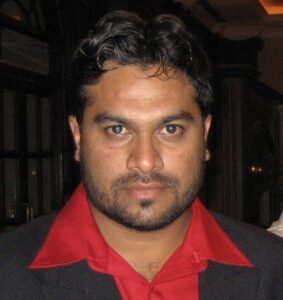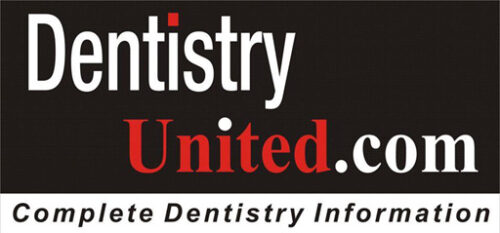Prologue:
In the sanctuary of the dental operatory, under the soft glow of surgical light and the near-ritual silence of sterilized steel, there exists a theatre of quiet miracles. This space is where pain is transfigured, where trauma is met not only with science but with presence, and where every act of healing is as much philosophy as it is procedure.
A woman entered our clinic not long ago, carrying the fractured remnants of an accident upon her face. Her upper anterior teeth—three of them, that sacred trinity of the smile—were destabilized, their roots shaken loose like old certainties in an earthquake. Her lip was torn, raw, and heavy with the visible burden of impact. At her side stood her husband, a man whose posture was wrapped in wealth, but whose eyes betrayed helplessness.
As clinicians, we knew the course forward. It was not straightforward—it rarely is. Each tooth needed immediate immobilization, each ligament coaxed into healing. The lip required multi-layered suturing: mucosa, muscle, dermis—each layer stitched with the precision of a cartographer redrawing the borders of her identity. The artistry was in the details, and the stakes were far more than aesthetic. We explained the extent of the work, not as a transaction, but as an invocation of craft—an offering shaped by decades of accumulated mastery and minute observation.
He agreed. And we began.
And when it was done, she smiled—a full, celestial smile that bore no trace of injury, no hint of rupture. It was the kind of smile that belongs to those who have known loss and returned, reformed.
But when the time came to honour the commitment, the husband faltered.
He questioned the value—not of the result, but of the process.
And therein lies the wound that does not bleed.
The Unseen Currency of Care
Those of us who operate in the oral realm—who hold not just enamel but emotion in our gloved hands—know this tension intimately. The world lauds the grandeur of bypasses and organ transplants, and rightly so. But the micro-surgeries we perform, the split-second decisions in blood-slicked silence, the restoration of form and function on a canvas as complex as the human face—these are often cloaked in invisibility.
It is a peculiar truth: dentists perform surgeries daily, each with its own choreography of risk, finesse, and anatomical reverence. Unlike our colleagues in other surgical fields, our work is expected to be routine, our outcomes predictable, and our value negotiable.
But we know better.
To immobilize a tooth after trauma is not merely to fixate it—it is to intercept the slow death of the periodontal ligament, to preserve proprioception, to forestall resorption. It is a calculated defiance of entropy.
To suture a lip is not merely to close a wound—it is to restore symmetry, to prevent hypertrophic memory, to respect the lip’s phonetic and psychosocial agency.
These are not just procedures. They are reparations. They are resurrection.
And yet, when spoken in the language of fees—especially in places untouched by the grace of insurance—such efforts are too often distilled into discomfort.
Insurance, when present, acts as a veil between gratitude and grievance. In its absence, the patient must look the clinician in the eye and decide what the healing was worth. It is a vulnerable place for both.
On Gratitude and Its Ghosts
We do not seek applause. We seek understanding. The nod, the eye contact, the gentle “thank you” that acknowledges more than time—it acknowledges sacrifice, sacrifice unseen. The hours of study, the cumulative tremor of dozens of surgeries, the emotional cost of carrying the pain of others into one’s own body and still returning to the chair the next morning.
And when that gratitude is withheld—not out of malice, but out of misalignment—it stings not because we are proud, but because we are human.
It would be easy to grow callous. But the true healer never does. Instead, we seek meaning.
Perhaps the husband’s hesitation was not ingratitude, but an echo of a deeper dissonance—between what can be measured and what cannot. Between the seen and the felt. Between the invoice and the invisible.
The Art of Explaining the Invisible
How, then, do we as dental surgeons, educators, poets of precision, bridge this enduring gap?
We must learn to speak before we touch. To describe not just the “what” but the “why.” Why we splint. Why we suture in planes. Why a torn lip is more than torn skin. We must let the patient see what we see: not a face, but a future.
And we must follow up—not out of obligation, but out of grace. A call the next day. A moment of human inquiry. These are the threads that reweave connection.
In time, we may find that gratitude, like healing, is nonlinear. It arrives when it is ready. Sometimes in a card. Sometimes in silence. Sometimes in the eyes of a husband who returns one day, humbled by hindsight.
Until then, we go on.
Because we are not only surgeons of the mouth.
We are guardians of the unspoken.
We are weavers of dignity.
We are restorers of the smile, the sigh, the self.
And in that sacred, daily work, we find our reward—not in coin, but in the quiet, often invisible grace of having mattered.

Author :Dr. Syed Nabeel, BDS, D.Orth, MFD RCS (Ireland), MFDS RCPS (Glasgow)
Dr. Syed Nabeel – Dedicated to Neuromuscular Dentistry, Orthodontics & Digital Innovation
Dr. Syed Nabeel is a dentist and innovator committed to education, patient care, orthodontics, and research. As Founder & CEO of DentistryUnited.com (since 2004), he has built a global platform for dental professionals. He also launched Dental Follicle – The E-Journal of Dentistry (ISSN 2230-9489) in 2006 to promote scholarly exchange in dentistry and orthodontics.
Clinical Practice & Leadership
As Managing Director of Smile Maker Clinics Pvt Ltd, Dr. Nabeel manages his practices and plans nationwide expansion with a focus on evidence-based dentistry and research. His areas of focus include:
✔ Neuromuscular Dentistry & TMJ Treatment
✔ Full-Mouth Rehabilitation & Smile Makeovers
✔ Orthodontics – Braces, Aligners & Digital Treatment Planning
25 Years of Learning & Innovation in Dentistry & Orthodontics
With 25 years of experience, Dr. Nabeel continues to explore AI, orthodontics, and digital workflows to enhance patient care. His key interests include:
AI in Dentistry & Orthodontics – Improving diagnostics & treatment precision
Digital Dentistry & Workflow Optimization – Enhancing efficiency & patient experience
Educator & Speaker
A dedicated mentor & speaker, he enjoys sharing insights on:
✔ Neuromuscular Dentistry, Orthodontics & TMJ Disorders
✔ Practice Management & Digital Integration
Beyond Dentistry
Dr. Nabeel finds joy in wildlife photography, travel, and gardening, always eager to learn from new experiences. Grateful for his mentors, colleagues, and patients, he remains committed to growth and innovation in dentistry and orthodontics.
Email: dentistryunited@gmail.com
Website: www.DentistryUnited.com

